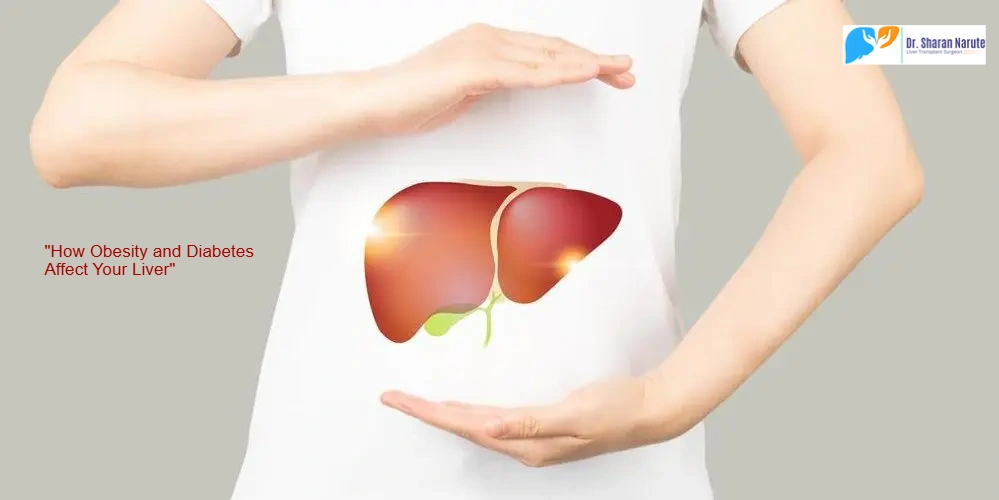The liver plays a critical role in detoxifying the body, regulating metabolism, and processing nutrients. However, lifestyle diseases like obesity and diabetes have a profound impact on liver function—often leading to serious conditions such as Non-Alcoholic Fatty Liver Disease (NAFLD), steatohepatitis, and even liver failure. These conditions are becoming increasingly common, making it essential to understand the connection between metabolic disorders and liver health.
In this article, we will explore how obesity and diabetes affect your liver, the risks involved, and when to seek help from a Liver Transplant Surgeon in Pune.
The Rising Threat: Obesity and Liver Damage
Obesity is more than just excess weight; it disrupts multiple organ systems, including the liver. When fat accumulates in liver cells, it leads to fatty liver disease. This condition can be silent for years but may progress to Non-Alcoholic Steatohepatitis (NASH), where inflammation and scarring occur.
How Obesity Affects the Liver:
-
Increased Fat Storage: Extra calories, especially from sugar and fat, are stored in liver cells.
-
Inflammation: Obesity triggers a state of chronic low-grade inflammation, which worsens liver health.
-
Insulin Resistance: Common in obese individuals, it leads to fat buildup in the liver.
As obesity worsens, the liver becomes inflamed, scarred (fibrosis), and eventually may fail. In advanced cases, this requires consultation with a Liver Transplant Surgeon in Pune to evaluate the need for transplant.
Diabetes and Liver Health: A Dangerous Duo
Diabetes, particularly Type 2 Diabetes, is closely linked with liver disease. The high blood sugar and insulin resistance characteristic of diabetes accelerate fat accumulation in the liver. Over time, this can lead to:
-
Non-Alcoholic Fatty Liver Disease (NAFLD)
-
Non-Alcoholic Steatohepatitis (NASH)
-
Cirrhosis (advanced scarring)
-
Hepatocellular Carcinoma (Liver Cancer)
Diabetic patients often have metabolic syndrome, a cluster of conditions including high blood pressure, high cholesterol, and obesity, which collectively increase the risk of severe liver damage.
Silent but Serious: Why Early Detection Matters
The most dangerous part of fatty liver disease is that it’s often asymptomatic. Many patients are unaware until significant liver damage has occurred.
Common Warning Signs Include:
-
Fatigue
-
Abdominal discomfort
-
Unexplained weight loss
-
Swelling in legs or abdomen
-
Yellowing of eyes (jaundice in advanced stages)
Early diagnosis through liver function tests and ultrasound can help control the disease and prevent progression to liver failure.
When to See a Liver Transplant Surgeon in Pune
If fatty liver disease progresses to cirrhosis or liver failure, lifestyle changes and medication may not be enough. At this stage, you should consult a Liver Transplant Surgeon in Pune for evaluation.
You may need a liver transplant if:
-
Your liver can no longer perform its basic functions
-
There is repeated fluid buildup or bleeding
-
You experience episodes of confusion due to liver dysfunction
-
You have liver cancer caused by underlying fatty liver disease
Pune has some of the most advanced facilities and experienced liver transplant teams to ensure successful outcomes for patients with end-stage liver disease.
Lifestyle Tips to Protect Your Liver
Whether you have diabetes, obesity, or are just looking to stay healthy, here are some liver-friendly lifestyle tips:
-
Maintain a Healthy Weight – Aim for gradual weight loss; even 5–10% can reduce liver fat.
-
Control Blood Sugar – Regular monitoring and medication compliance are key for diabetics.
-
Eat a Balanced Diet – Focus on vegetables, whole grains, lean proteins, and healthy fats.
-
Exercise Regularly – 30 minutes of moderate activity, 5 times a week.
-
Avoid Alcohol and Smoking – These increase the burden on your liver.
-
Regular Check-ups – Especially if you have a family history of liver or metabolic diseases.
Conclusion
Obesity and diabetes are not just lifestyle concerns—they are direct threats to liver health. Left unchecked, they can lead to irreversible liver damage requiring transplant. The good news? With early detection and lifestyle changes, you can prevent or even reverse liver disease.
If you or a loved one is at risk or already showing symptoms, don’t delay. Consult a trusted Liver Transplant Surgeon in Pune to assess your liver health and get expert care.

